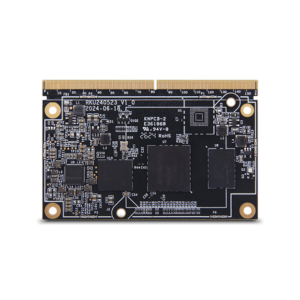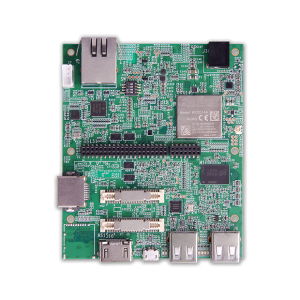The Advantages of Computer-on-Modules for Scalable, High-Performance Applications
The Advantages of Computer-on-Modules for Scalable, High-Performance Applications
Blog Article
Accelerating Product Development with Versatile Computer-on-Modules
In today's fast-paced technological landscape, corporations and developers are significantly looking at modular solutions to meet up the ever-growing needs of high-performance applications. One particular answer increasing grip is the use of arm computer on module. These small, self-contained methods are stuffed with all the crucial components of a pc, including the processor, memory, storage, and connection interfaces, all incorporated into just one unit. In this short article, we discover why Computer-on-Modules are being a go-to choice for scalable, high-performance purposes across different industries.

1. Lightweight Style and Integration
One of many principal features of COMs is their small type factor. These adventures are made to integrate all important the different parts of a computer, lowering the need for multiple discrete parts and rendering it simpler to generate lightweight, space-efficient systems. This integration helps developers to construct effective answers without compromising the overall size of the finish product, which is specially useful in industries such as for instance stuck programs, IoT units, and industrial automation.
2. Scalability for Varied Purposes
Scalability is an essential component for contemporary programs, particularly in sectors like telecommunications, automotive, and edge computing. With Computer-on-Modules, companies can easily degree up or down with regards to the particular performance and source demands of these projects. For example, a business making an edge research alternative can begin with a module that fits fundamental needs and then upgrade to stronger adventures whilst the workload or control needs grow. This flexibility allows corporations to future-proof their opportunities and arrange hardware with changing performance demands.
3. High-Performance Processing
Many high-performance programs require a robust computational backbone to deal with demanding tasks such as real-time information processing, movie analytics, or machine learning. COMs are normally made with effective processors, high-speed interfaces, and sufficient memory, making them effective at delivering the high throughput and low-latency efficiency necessary for these applications. Furthermore, their ability to guide the latest processor architectures guarantees that techniques may remain at the lead of performance benchmarks.
4. Cost Performance and Time Savings
Yet another significant advantage of applying Computer-on-Modules is cost efficiency. Because the adventures come pre-integrated with necessary components, developers save yourself equally time and assets that will otherwise be allocated to designing, testing, and building specific components. This can cause paid off progress rounds and a faster time-to-market for products and services, which will be critical in aggressive industries. Additionally, since the hardware parts are standardized, the danger of incompatibility is reduced, ultimately causing better growth techniques and decrease design costs.
5. Flexible Customization
While COMs offer a large level of integration, they are also designed for flexibility. Several COMs come with different choices for I/O interfaces, storage configurations, and power administration alternatives, allowing developers to target the module to the particular wants of their application. That versatility is particularly useful in industries wherever customization is key, such as for instance medical units, robotics, and automotive applications.

Conclusion
In conclusion, Computer-on-Modules present numerous benefits for businesses and designers looking to generate scalable, high-performance solutions. Their compact style, scalability, powerful running functions, cost-efficiency, and customization alternatives cause them to become an ideal choice for a wide selection of applications. As industries continue to evolve and demand stronger, variable alternatives, COMs will certainly play a pivotal position in surrounding the ongoing future of technology. Report this page